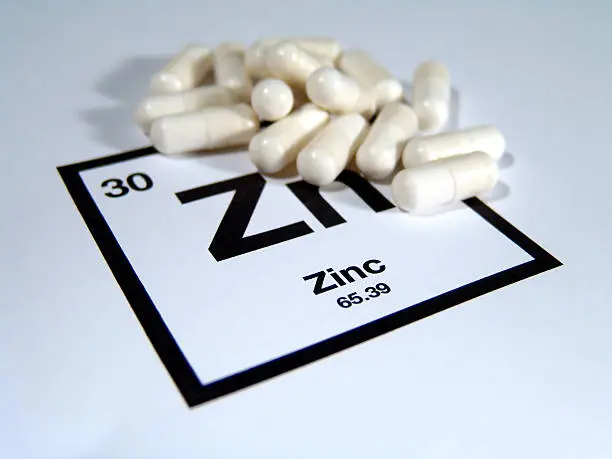When you think of zinc, over‑the‑counter cold lozenges or sunscreen may spring to mind. Yet this humble trace mineral does so much more than soothe a sniffle or protect your skin—it’s a cornerstone of nearly every system in your body. Since we can’t manufacture zinc internally, getting enough from the foods we eat is essential for staying healthy.
What Exactly Is Zinc?
Zinc is a trace mineral, meaning your body needs only small amounts—but those small amounts pack a powerful punch. Registered dietitian Teresa Fung, ScD, RD, explains: “Because our bodies can’t produce zinc, it must come from our diet.” You’ll find it in a variety of animal and plant foods, which we’ll explore below.

Why Your Body Craves Zinc
Zinc wears many hats in your physiology. Here’s a closer look at its top roles:
- Immune Support
Zinc is crucial for building and activating white blood cells that ward off infections. A deficiency can lead to increased susceptibility to colds and other illnesses. - Wound Healing
From a scraped knee to post‑surgery recovery, zinc accelerates tissue repair by helping your body generate new cells and proteins. - Growth and Development
During childhood and adolescence, adequate zinc intake supports healthy bone growth and overall body development. Pregnant women rely on zinc for proper fetal growth and organ formation. - Hormone Production
Zinc plays a part in synthesizing insulin for blood sugar control and testosterone for reproductive health and muscle maintenance. - Sense of Taste and Smell
Ever enjoyed a meal less because your sense of taste was dulled? Zinc deficiency can impair these senses, robbing everyday foods of their flavor.
How Much Zinc Do You Need?
Health authorities have set Recommended Dietary Allowances (RDAs) to ensure adequate intake:
- Adult Men: 11 mg per day
- Adult Women: 8 mg per day
- Pregnant Women: 11 mg per day
- Breastfeeding Women: 12 mg per day
Most people can hit these targets through diet alone—though certain life stages and conditions may raise your needs.
Signs of Zinc Shortfall
If your diet falls short, you may notice:
- Slow Healing: Wounds that take forever to close.
- Immune Woes: Frequent colds or persistent infections.
- Skin Issues: Hair loss, rashes, or acne-like lesions.
- Loss of Taste/Smell: Foods and scents seem muted.
- Digestive Troubles: Chronic diarrhea in severe cases.
Children with inadequate zinc may experience stunted growth, delayed sexual maturation, and recurrent illnesses. Because these symptoms can overlap with other health issues, a simple blood test is the only sure way to diagnose zinc deficiency.
Top Zinc‑Rich Foods
To fortify your diet, aim for a mix of animal and plant sources:
| Food Item | Zinc Content (per typical serving) |
|---|---|
| Oysters (3 oz cooked) | 74 mg |
| Beef Chuck Roast (3 oz) | 7 mg |
| Pumpkin Seeds (1 oz) | 2.2 mg |
| Cooked Lentils (1 cup) | 2.5 mg |
| Cooked Chickpeas (1 cup) | 2.5 mg |
| Mushrooms, Shiitake (1 cup) | 2 mg |
| Almonds (1 oz) | 0.9 mg |
| Fortified Breakfast Cereal (1 cup) | 3–5 mg |
| Shrimp (3 oz) | 1.3 mg |
| Yogurt (1 cup) | 1.4 mg |
Oysters top the chart, boasting more zinc per serving than almost any other food. Red meat, shellfish, and poultry are also excellent sources, providing highly bioavailable zinc that your body absorbs with ease. Plant-based options—like legumes, seeds, nuts, and whole grains—offer valuable zinc too, though their phytates (natural compounds in plants) can slightly hinder absorption.
Maximizing Zinc Absorption
If you rely heavily on plant‑based zinc sources:
- Soak or Sprout Grains and Beans: This reduces phytates and boosts mineral availability.
- Pair with Protein: Animal proteins can enhance zinc uptake when eaten alongside plant foods.
- Limit High‑Phytate Foods at Meals: Foods like unfermented whole grains or certain raw legumes may block zinc absorption if consumed in large amounts at the same meal.
Supplements: When Diet Isn’t Enough
Most people meet their zinc needs through balanced eating. However, in cases of diagnosed deficiency, vegetarian or vegan diets, certain digestive disorders (like Crohn’s disease), or during pregnancy and lactation, a healthcare provider may recommend a zinc supplement. Always discuss dosage and duration with your doctor to avoid potential side effects—such as nausea or interference with copper absorption—associated with excessive zinc intake.
A Final Word on Zinc
Though we may think of zinc only when we’re under the weather or slathering on sunscreen, its contribution to our overall well‑being is profound. From bolstering immunity and speeding recovery from injury to supporting growth, hormone balance, and sharp senses, zinc deserves a starring role in your nutritional lineup.
By incorporating a variety of zinc‑rich foods into your daily meals—and paying attention to absorption strategies—you can ensure this vital mineral powers your body’s most essential functions. After all, staying healthy isn’t just about the big headlines; it’s about the trace nutrients that quietly keep us running.

